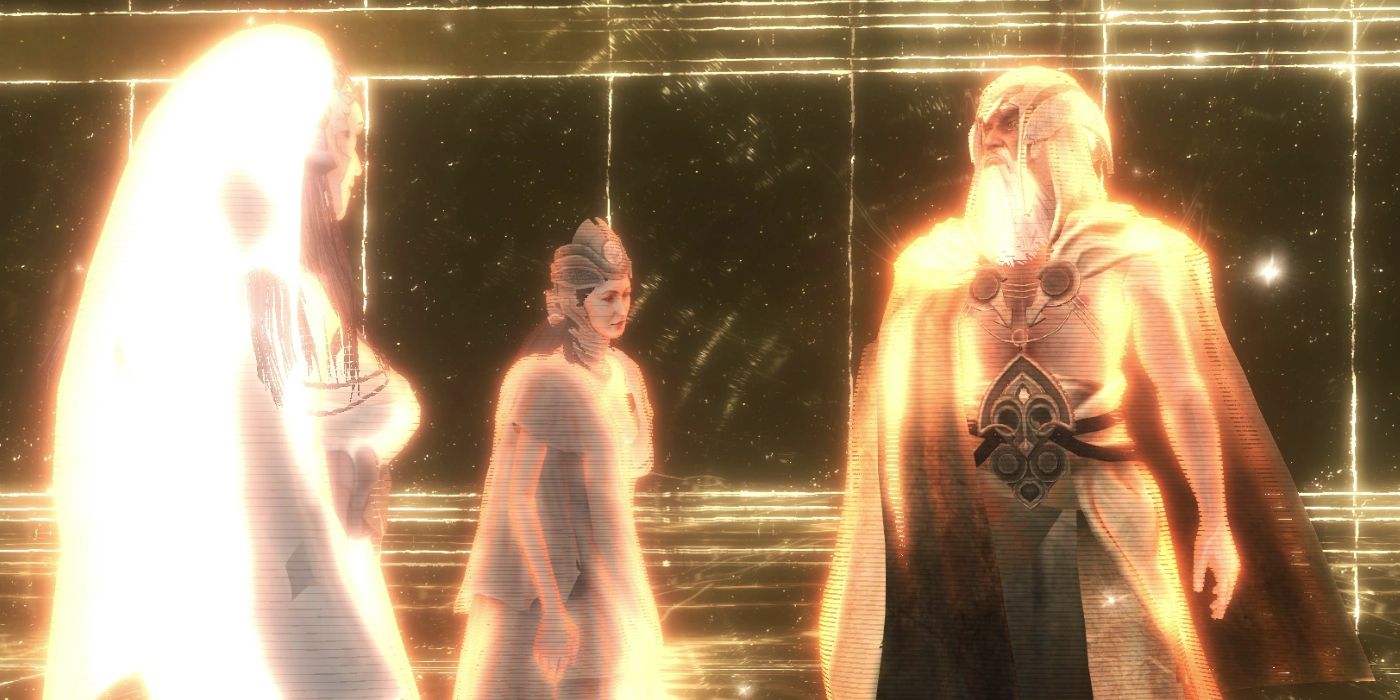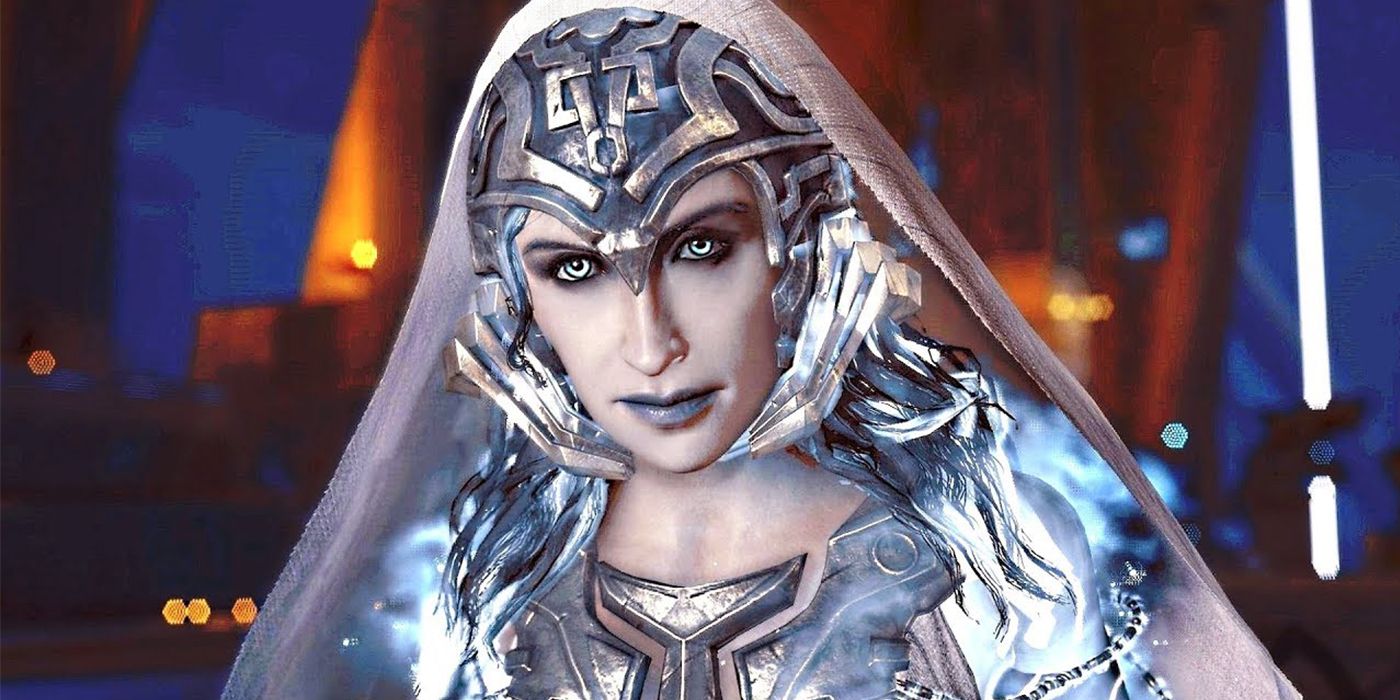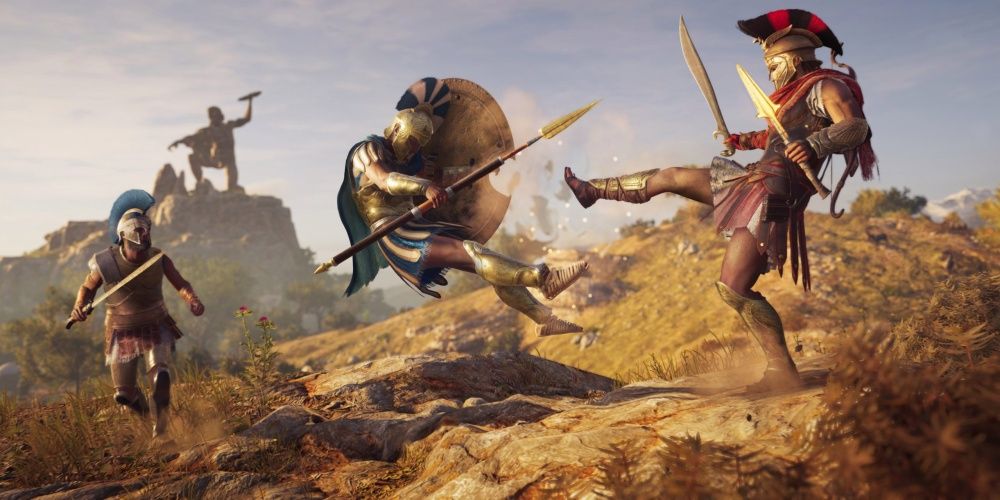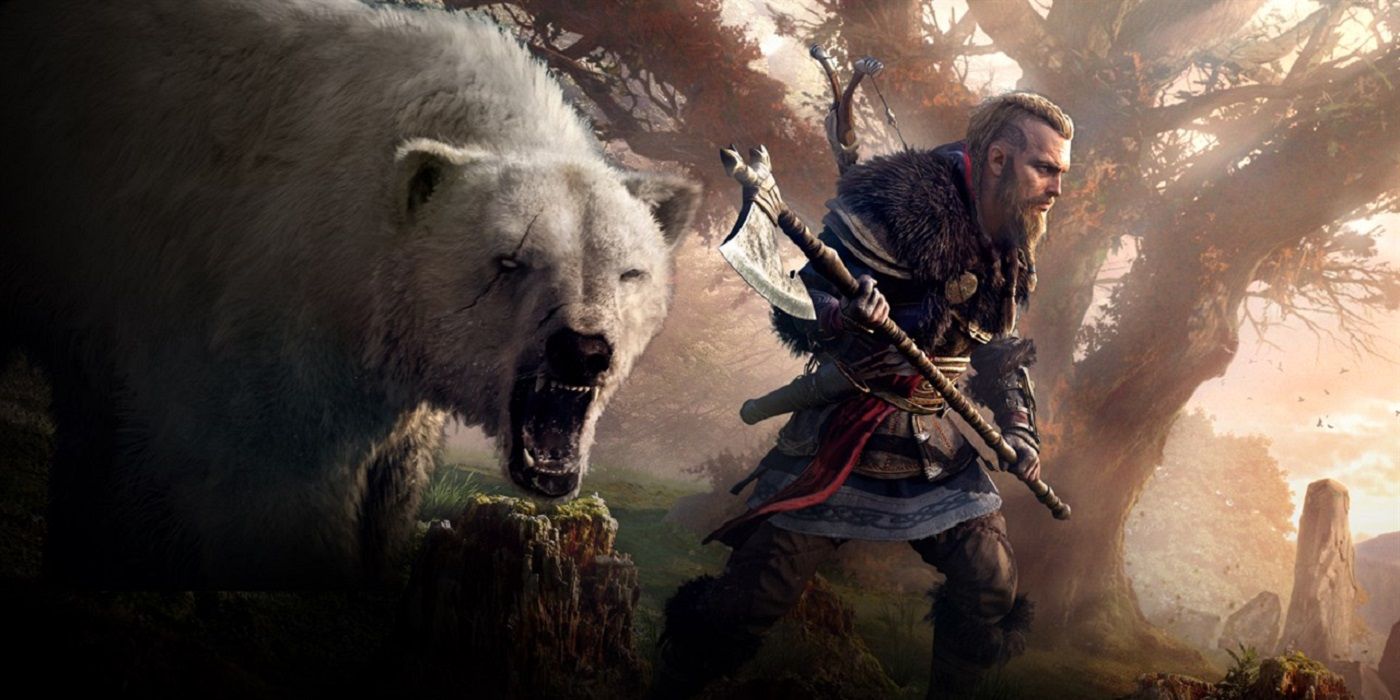The science fiction elements of the Assassin’s Creed games have rarely been as successful or well-received as the historical fiction which dominates most of the games. Famous moments in the franchise’s history like Ezio meeting Leonardo Da Vinci or his vendetta against Pope Alexander VI are far more iconic than, for example, the ancient history of the Isu, a humanoid race who created the pieces of Eden.
The Isu were a race of advanced humanoids who ruled Earth around 77,000 years before Desmond Miles was first kidnapped by Abstergo Industries. As the games have progressed, more and more has been revealed about the Isu. However, there are reasons that the expansion of the Isu mythology in Assassin’s Creed risks undermining the historical aspects which forms the games’ foundations.
The Isu and the First Civilization
The Isu created humanity in the Assassin’s Creed universe as a workforce, while they also created Neanderthals to be their soldiers. Both new species were controlled with the Pieces of Eden, but a human uprising began when a piece of Eden was stolen by Adam and Eve. The tide of the war was turned by an event called the Great Catastrophe, when a solar storm wiped out all but a few Isu scientists left hidden messages for humans to prevent such an event occurring again.
These Isu included ones who would later become known as Minerva, Juno, and Jupiter – the Capitoline Triad. The memories and messages left by these Isu would be mistaken for gods by many different civilizations depicted across all the Assassin’s Creed games, but even as a premise, there was a problem.
Though the Pieces of Eden have always featured in the Assassin’s Creed games ever since Altair fought for one in the first installment, not only have they often simply been MacGuffins in the plot, but the use of the Isu to explain aspects of human religion and mythology doesn’t always quite align with the strengths of the rest of the games. It raises the question of why the games felt the need to explain magic and mythology in the world at all when it doesn’t feature in the games apart from in the player characters’ interactions with the Isu.
It is a very different relationship, for example, than the one Corvo has with the Outsider in Dishonored, where the Outsider is a necessary explanation for the powers Corvo uses throughout the games. As Assassin’s Creed has expanded as a franchise and visited different eras, the Isu have been the origins of the Greek Gods in Odyssey, the Roman gods in the ancient history of Ezio’s story in Italy. Isu included in the games include Zeus, Atlas, Charon, Hades.
Where the Isu Work Well
On the other hand, Assassin’s Creed Odyssey was the game which most heavily featured the Isu, all as stand-ins for the Hellenic pantheon, and Odyssey was very well received. The problem, however, is that Odyssey also established a lot about the Isu which risks essentially making the Greek and Roman pantheon – even as a sci-fi precursor creator race – too ubiquitous throughout history. This could undermine the ability of the stories to really dive into the different cultures portrayed across the games.
The problem is that the Isu and the First Civilization then reduce the differences between some of the different cultures explored in the historical fiction side of Assassin’s Creed. They risk undermining the games’ strongest and most interesting suit.
For Roman, Greek, Viking, and even Christian and other monotheistic mythologies to be revealed to all be in some way the same thing blurs the lines that makes exploring different time periods interesting. It’s a similar conflict Assassin’s Creed has with other aspects of its premise. The fact that the games almost always focus on some iteration of the Assassin-Templar war, for example, sometimes undermines their abilities to tell compelling stories when players know the balance of power in that conflict cannot change if the franchise is going to continue to focus on it.
While the last game presented a unique opportunity to explore the Isu, particularly with their hybrid experiments as explanations for the Minotaur and Medusa in Assassin's Creed Odyssey among other famous mythological hybrids, it has another troubling implication for the new games. At this point, Assassin’s Creed risks players simply knowing far more about the world's secrets than the characters they’re playing, which poses particular problems for immersion with the series' recent RPG-turn. With each new PC discovering the truth about the Isu, the plot risks feeling repetitive.
The Isu in Valhalla
For example, if Eivor, the protagonist of Valhalla, were to hear stories of storms on their journey from Scandinavia to Britain that the Norse would identify as connected to Njord–god of the wind and sea–then players would already be able to infer that any actual appearance by Njord would be an Isu. Similarly, fans can already infer that Valhalla will very likely be an Isu city or simulation if it makes a literal appearance in the game, taking a lot of the mystery away.
Part of the problem, of course, is that there have been twelve major Assassin’s Creed games released so far since 2007, and the formula of the games was already well-established after Ezio’s story ended in Assassin’s Creed: Revelations. Ubisoft has few choices but to expand upon the lore already established and to apply it to different time periods.
Hopefully, just as the games seem to be moving away from the Assassin-Templar conflict in Assassin’s Creed Valhalla, at least partially, the games will also increasingly focus on their strengths as historical fiction without being tied down by some of the other aspects of the Assassin’s Creed lore. That, however, remains to be seen when Assassins Creed Valhalla releases later this year.
Assassin's Creed Valhalla launches on November 10th for PC, PlayStation 4, Stadia, Xbox One, and Xbox Series X/S. It will release for PlayStation 5 on November 12th.




